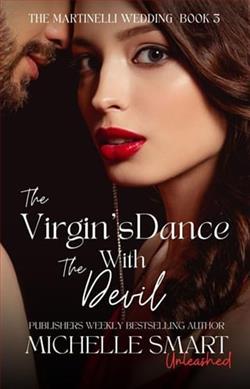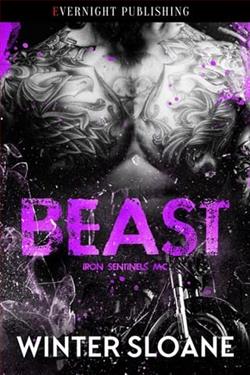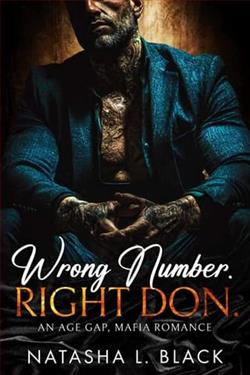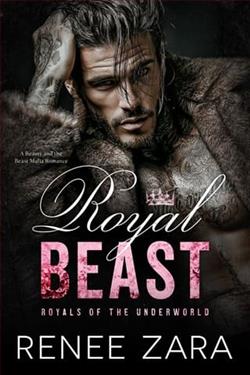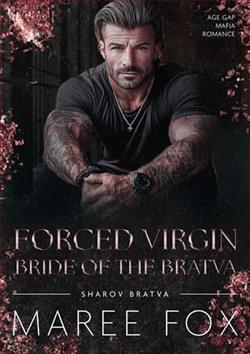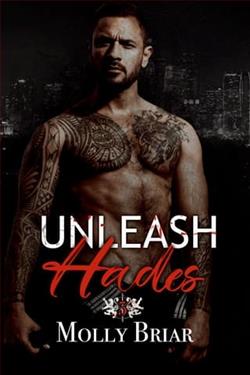Page 34 of Sweet and Salty
Still keeping a close eye on her to make sure I don’t miss any symptoms, I clean her off with the hose and a chamois, getting rid of the mud coat she’s given herself. She huffs at first, but seems more resigned to her fate today after last night in the barn.
After I finish cleaning her, I head back to the cleaning bucket and wring out the chamois, and that’s when I see it. Acorn shells stuck to the fabric. Green acorn shells.
Hmm. Most livestock won’t eat oak leaves or acorns unless there isn’t anything else or they’d gotten mixed into her feed somehow.
There’s something about all of this that feels eerily familiar.
I check through the alfalfa bale in her and the pigs’ stalls, but there isn’t anything there but fresh hay. No acorns or oak leaves.
I step outside the barn and survey the back of Laura’s property. The nearest oak trees are closer to my cabin, about half an acre from the edge of the paddock where Lucretia Borgia grazes.
Glancing up at the sun, I judge I still have an hour or two of daylight left. I can’t leave Laura’s donkey unattended. What if she goes back to the paddock and ingests more? That much prolonged exposure could kill her from kidney damage.
Laura won’t want me leaving her donkey at risk.
So I jump over the paddock rail and walk around the perimeter in slowly narrowing concentric circles, picking up bits and pieces for later examination and storing them in my pocket.
It’s deliberate, measured work, and far too easy to lose track of time.
“Are you putting donkey pies in your pocket?” I hear Laura call.
My head shoots up, which sends a creaking ache through my neck.
Still. Worth it.
Laura looks amazing. Her eyes are bright and sparkling, and she must have changed at her mom’s house, because instead of the dirt-covered jeans she had after cleaning up my broken hovel, she wears a fresh, spring dress, yellow with large blue flowers all over it. “What are you doing?” she asks.
I drop a handful of rocks I’ve been perusing for acorn husks, and they scatter and skittle across the ground. “I was just looking at your paddock.”
“Obviously.” She climbs up the fence and perches on the top rail, crossing her cowboy boots at the ankles and balancing with her hands on either side of her. I fucking love a full-figured woman in a sundress and cowboy boots. I have a sudden, nearly irrepressible urge to step in front of her and wrap my arms around her waist. I would lift her up and press her body to mine.
Which is clearly a fever dream from staring at donkey manure and paddock detritus for far too long.
“I noticed Lucretia Borgia didn’t look quite right. I thought maybe she’d eaten something that wasn’t good for her. We’ve had a bunch of storms lately and things can get blown all over. Rhododendron leaves, stone fruit pits, flowers, ragweed.”
Laura’s gaze looks pained. “What’s wrong with her? I check her feed. Apart from grazing, she only gets the alfalfa and some hot mash once in a while.”
I shrug and hold out the acorn shells and oak leaves I found. “I thought maybe these had blown into the paddock, but they’re in little piles, which doesn’t make sense. It looks more like someone dropped them on purpose. I checked the pig pen too, and there aren’t any there.”
Laura jumps off the fence and lands in the paddock with a squelch as her boots sink into the post-storm mud. “Are you saying that someone tried to poison my donkey?”
A rush of déjà vu rolls over me in sickening waves, so rough that I bend in half, tucking my head down between my knees to get my balance back. This can’t be true. No one would be poisoning Laura Marshall’s rescue donkey. I’m not a vet any more. This isn’t the racetrack. Lucretia Borgia isn’t Lacrimas. Laura Marshall is definitely, positively, not Esme.
“Jesse?” A warm hand strokes my back in big circles. “Are you okay?”
No, Laura is not Esme. I stand up, pulling myself back to Wisconsin, far away from all the memories.
“I’m okay. I’m sorry.” It’s all I can think to say. She steps back from me, every inch a chasm, and bites her lip.
“I don’t understand,” she says softly. “I called Dr. Gustavson, the local vet. He examined her, and he didn’t find anything wrong.”
This is not a time to list my now-defunct credentials. Well, not defunct, but semi-permanently on ice. “I don’t know. It was a hunch. The good news is I think she’ll be fine. I’ll clean out the paddock so she can graze here safely, or you can keep her in the barn or graze her elsewhere for a while. We’ll give her a lot of water and flush out whatever it was she ate. It couldn’t have been much. She doesn’t even have a lot of edema. Um, swelling.” I stare at the ground, because looking at Laura in that outfit is a lot like looking directly at a solar eclipse.
Laura eyes me carefully. “How do you know all this? Did you grow up on a farm?”
I swallow, unable to meet her gaze. “I grew up around animals.”
She crosses her arms over her chest, apparently unwilling to let this go. “Were your parents farmers? Or vets? Maybe you’ve been poisoning her, like a vet Munchausen thing.”








